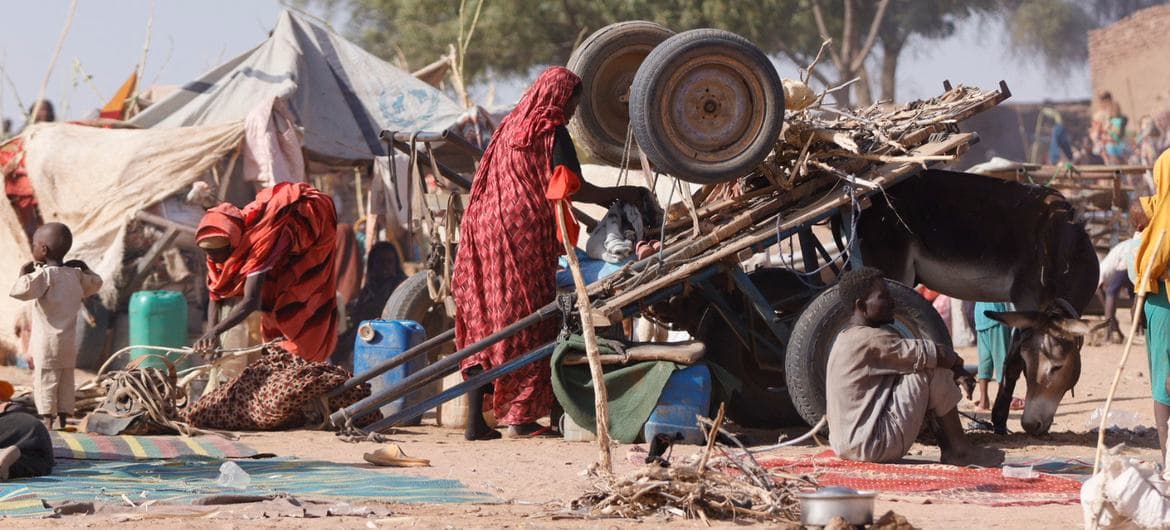We're loading the full news article for you. This includes the article content, images, author information, and related articles.
A new UN investigation into mass killings in Sudan's El-Fasher raises accountability hopes as Kenya grapples with a surge in refugees and heightened regional instability stemming from the prolonged conflict.

The United Nations Human Rights Council has unanimously approved an independent investigation into mass killings and other atrocities in the Sudanese city of El-Fasher, North Darfur. The decision, made during an emergency session in Geneva on Friday, November 14, 2025 (EAT), mandates an urgent inquiry to identify individuals and commanders responsible for ethnically motivated killings, torture, and widespread sexual violence following the city's fall to the paramilitary Rapid Support Forces (RSF) on October 26, 2025. The findings could be shared with the International Criminal Court (ICC), which is already investigating genocide, war crimes, and crimes against humanity in Darfur.
"The atrocities that are unfolding in El-Fasher were foreseen and preventable – but they were not prevented. They constitute the gravest of crimes," UN High Commissioner for Human Rights Volker Türk told the council, adding that his office had issued over 20 warnings about the city's dire situation in the past year. Reports indicate that since the RSF takeover, there have been mass killings of civilians, gang rapes, and attacks on medical facilities, creating what one UN official described as a city-wide crime scene.
The Sudanese civil war, which erupted in April 2023 between the Sudanese Armed Forces (SAF) and the RSF, has created the world's largest displacement crisis, with devastating consequences for Kenya and the broader East Africa region. The conflict has killed an estimated 150,000 to 400,000 people and displaced over 12 million from their homes. As of May 2025, Kenya hosts over 853,000 refugees and asylum seekers, with a significant number arriving from Sudan and South Sudan, placing immense strain on resources in camps like Kakuma and Dadaab. The influx exacerbates an already challenging humanitarian situation, impacted by global funding shortages for aid agencies.
Nairobi has been central to regional diplomatic efforts to resolve the crisis through the Intergovernmental Authority on Development (IGAD). President William Ruto has chaired IGAD processes aimed at bringing the warring factions to the negotiating table. However, Kenya's role has been complicated by accusations from the SAF-led government in Khartoum of siding with the RSF, a charge Nairobi has consistently denied while maintaining its neutrality. Government Spokesman Isaac Mwaura reiterated in June 2025 that Kenya's involvement is strictly limited to peace-building and humanitarian support.
The UN's investigation comes amid persistent reports of foreign powers fueling the conflict in violation of a long-standing arms embargo. Numerous reports from organizations like the Sudan Conflict Observatory and media outlets have documented weapons shipments to the warring parties. The United Arab Emirates (UAE) is widely accused of supplying weapons, including drones and military hardware, to the RSF. Conversely, Iran has reportedly provided armed drones and munitions to the Sudanese army. Both the UAE and the RSF have publicly denied these allegations.
These external interventions have complicated mediation efforts led by IGAD and other international partners, which have so far failed to secure a lasting ceasefire. The conflict has not only caused a humanitarian catastrophe but has also crippled Sudan's economy, with losses exceeding $26 billion, and is fostering a regional conflict economy based on illicit trade in food, fuel, and arms. The instability also threatens the fragile peace in neighboring South Sudan, which relies on Sudanese pipelines for its oil exports and has seen an increase in cross-border insecurity.
While the UN resolution signals a commitment to accountability, the investigation faces significant practical hurdles. The UN is grappling with a severe liquidity crisis, with member states—notably the United States and China—in arrears on their dues. This financial shortfall has already forced human rights investigations in Sudan and elsewhere to operate with skeleton crews and limited travel budgets, raising concerns about the new inquiry's capacity. Human Rights Watch warned in December 2024 that the lack of funds makes it difficult for investigators to fulfill their mandates, potentially delaying justice for victims. Despite these challenges, the mandate to collect evidence and identify perpetrators represents a critical step toward holding those responsible for the atrocities in El-Fasher to account.
Keep the conversation in one place—threads here stay linked to the story and in the forums.
Sign in to start a discussion
Start a conversation about this story and keep it linked here.
Other hot threads
E-sports and Gaming Community in Kenya
Active 9 months ago
The Role of Technology in Modern Agriculture (AgriTech)
Active 9 months ago
Popular Recreational Activities Across Counties
Active 9 months ago
Investing in Youth Sports Development Programs
Active 9 months ago